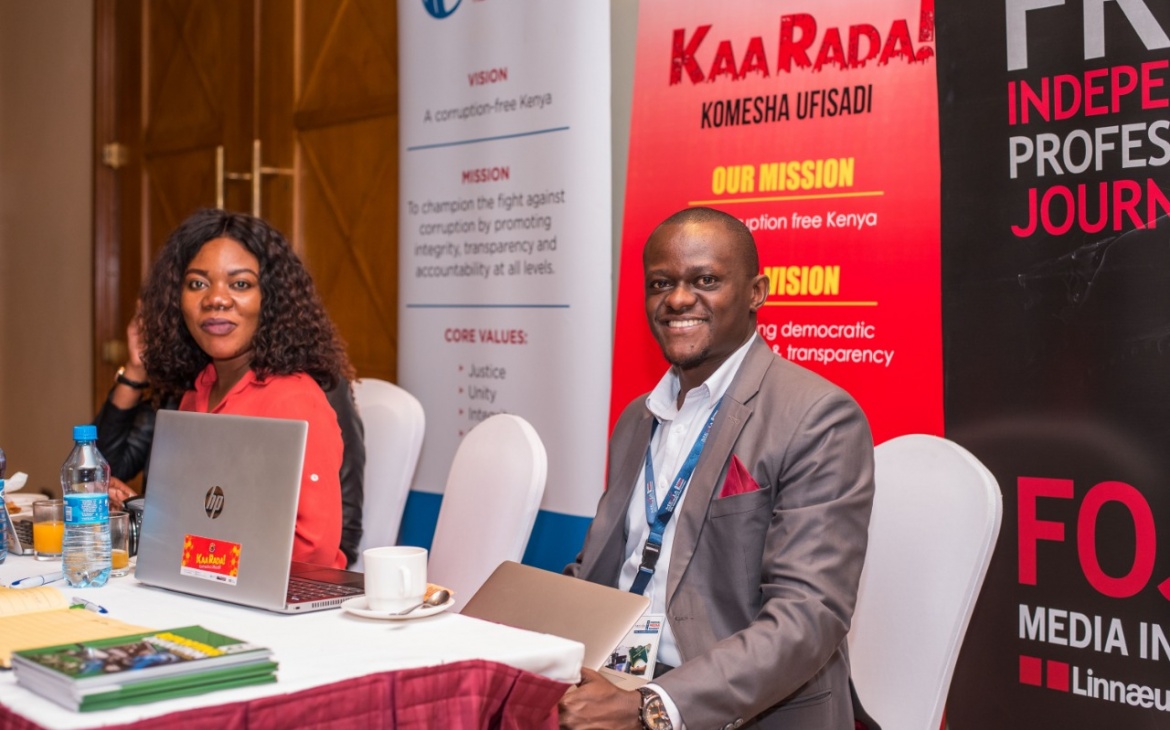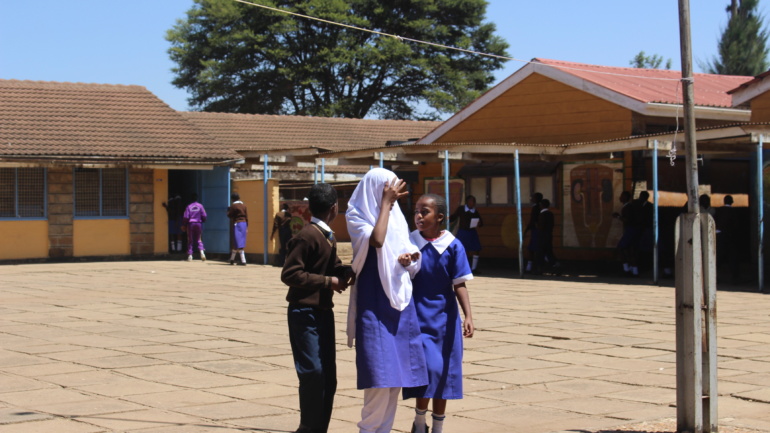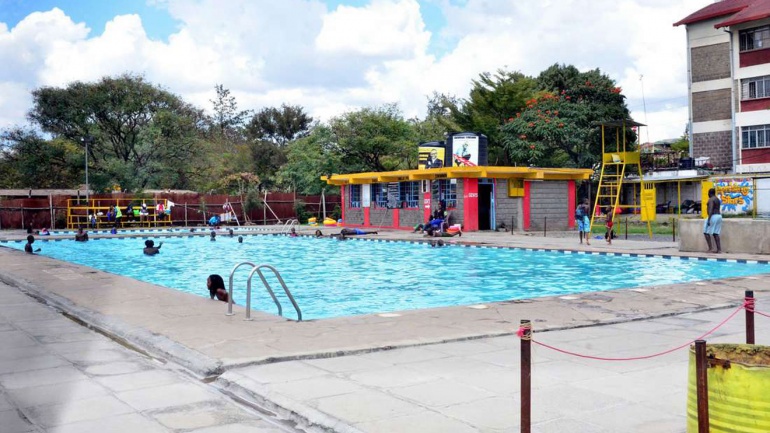Media Council of Kenya hosted the 2019 edition of the Annual Media Summit on 7th August 2019 to 9th August 2019 in Nairobi. The two day’s conference provided an opportunity for A4T to interact with key journalists, editors, governance experts and media stakeholder groups under the theme Media, Accountability and Good Governance. A4T has supported participation and exhibition in the last two Annual Media Summit and Annual Journalism Excellence Awards.
Panel Discussion
TI-Kenya’s Programmes Manager – Sheila Masinde, took part in a panel discussion themed: Corruption and the Media’s watchdog role – The Truth Still Matters. The session was moderated by Mutegi Njau, a veteran journalist and other panelist included; Consulting Editor – Macharia Gaitho, Nation Media Group Editor– Wayua Muli, People Daily Editor – Rebecca Mutiso, Associate Professor at the United States International University – Kioko Ireri and Assistant Director at Ethics and Anti-Corruption Commission – Lydia Manyasi.
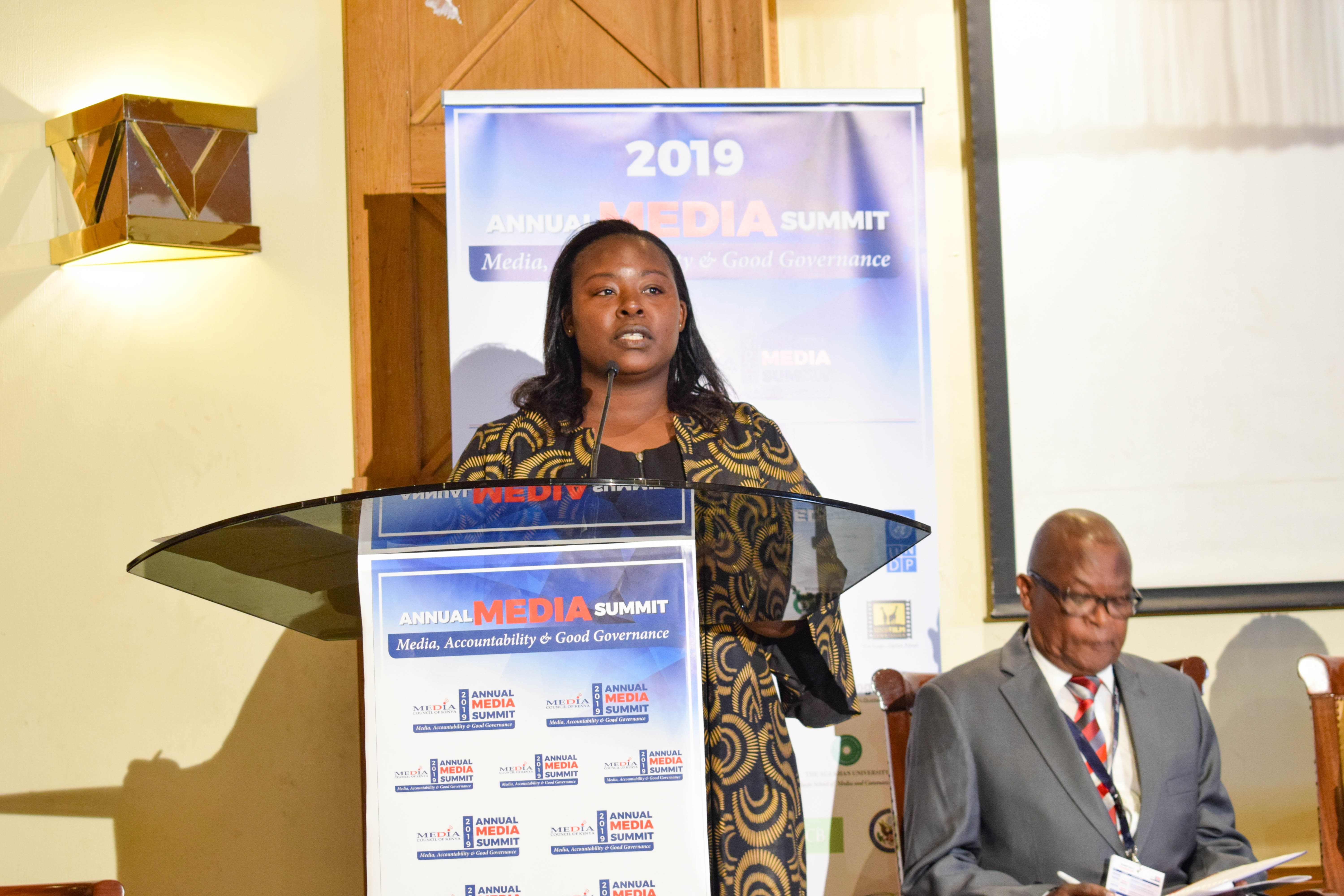
Sheila highlighted that there is need to strengthen the watchdog role of the media in fostering accountability and accelerating legal, political and penal action. She noted that corruption was a major obstacle to economic growth and that independent media was one of the cornerstones of democracy. Kenya is well known for its vibrant media having ranked 96/180 in the world press index on press freedom at 30.8 points. The programmes manager urged the media to appraise itself with the new transnational complexities, adding that corruption was fast mutating and recognised the important role played by media in drawing attention to the transgressions.
She added that there’s need to strengthen journalistic capacity and resources to support investigative journalism and mentioned that TI-Kenya is committed to build capacity among journalists, through the Action for Transparency and Eye on Corruption projects, to foster cross border collaboration among them, protect journalists against intimidation, link them with oversight bodies such as Office of the Auditor General, push for anticorruption laws, and in ensuring accuracy of information from media outlets on corruption issues. Finally, she called on the media to track the commitments made by the government in the fight against corruption.
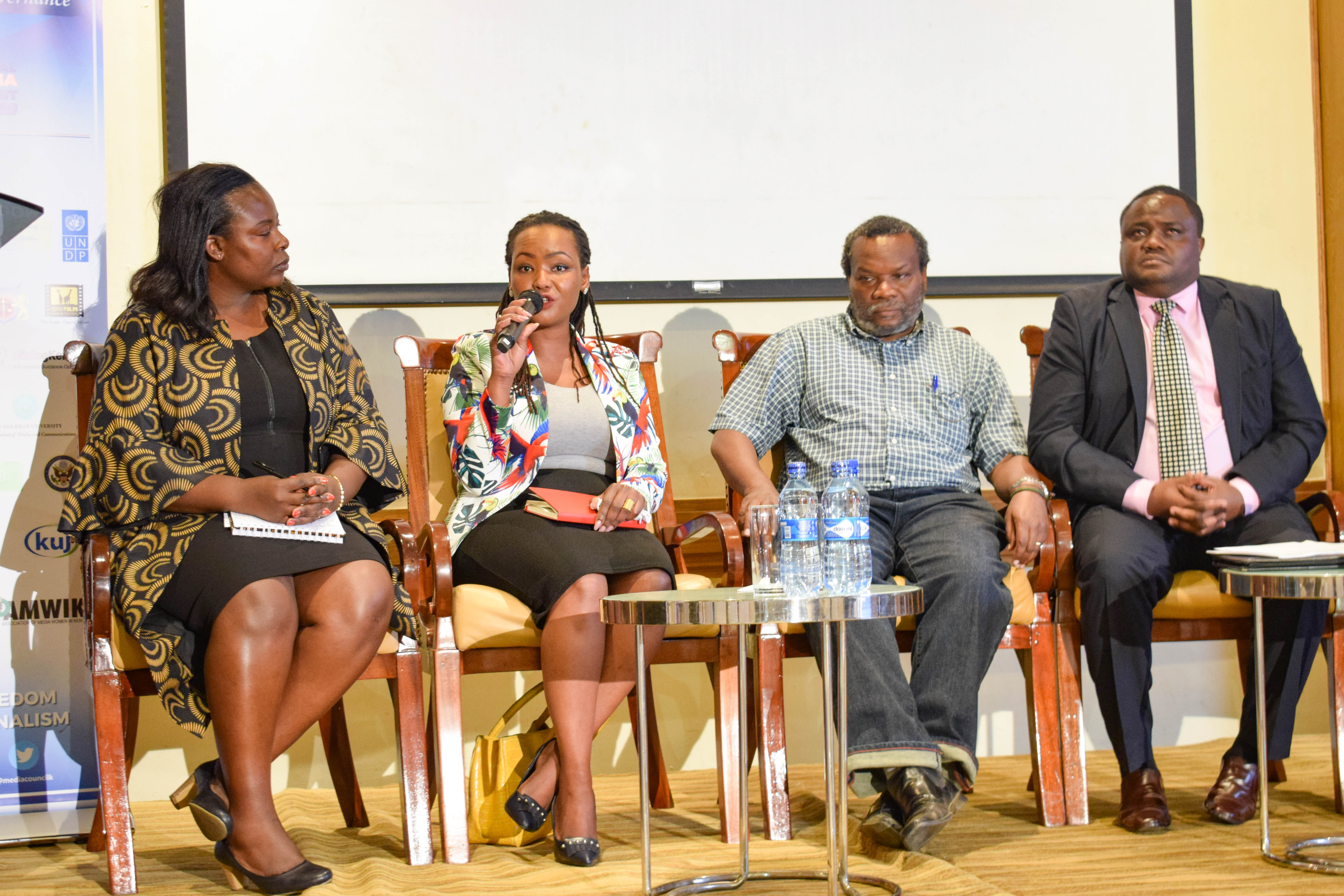
Ms Wayua Muli mentioned that corruption was an individual experience, noting that the country had normalised corruption such that business interests override journalistic integrity especially through the “brown envelope”. She called on journalists and editors to stand firm for the sake of the profession.
Mr Kioko Ireri stated that, according to a study he conducted, 74% of journalists believed there is corruption amongst them with 45% stemming from source-journalist relationships. He added that 83% declined having taken bribes, with reason for taking bribes ranging from poor pay to societal predisposition. The prof highlighted that fear of risking lives prevents many from getting into investigative journalism.
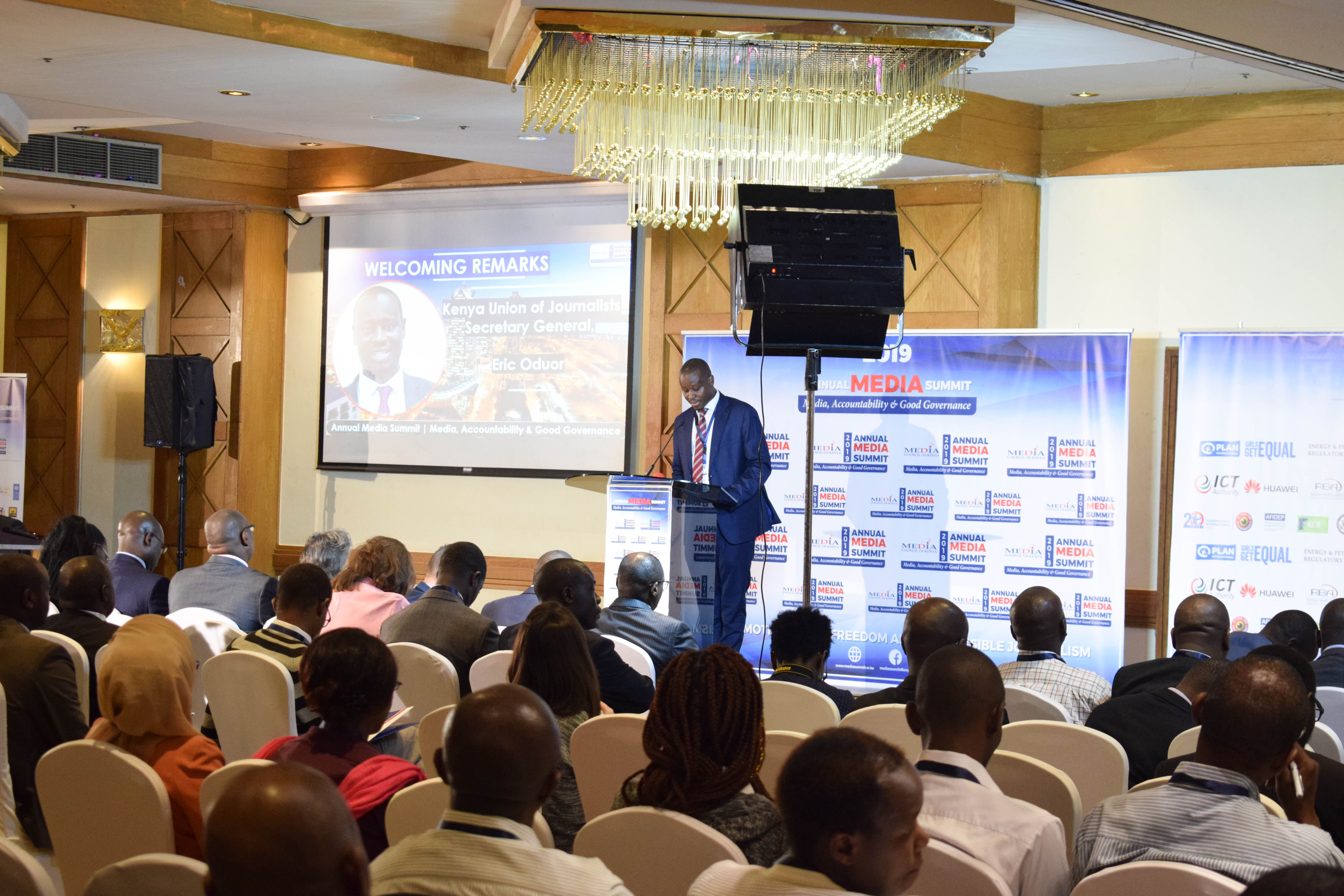
Ms Rebecca mentioned that the changing media landscape has seen media revenue shrink such that money should be dedicated to the right thing, being that the media is the ears and eyes of the public. She emphasised on the need to invest in trained journalists for quality reportage.
Ms Lydia observed that there were perceptions that corruption crimes were obvious, thus no need for further investigation, but there was the rule of law. She noted that the public was more bent on law enforcement but not on prevention, cautioning that the value system is broken. The Assistant Director urged the journalists not to lay down their lives for a story.
The panellists were optimistic that international collaboration could work as was the case with the panama papers scandal. This would help maximise resources, but the problem was the staying power which needed to be sustained. A good example cited was the use of vernacular radio stations and to help fight corruption seeing as it has been mainstreamed and embedded in the counties. FM stations are very crucial in helping the public understand it in mother tongue and should be properly utilised in this regard.
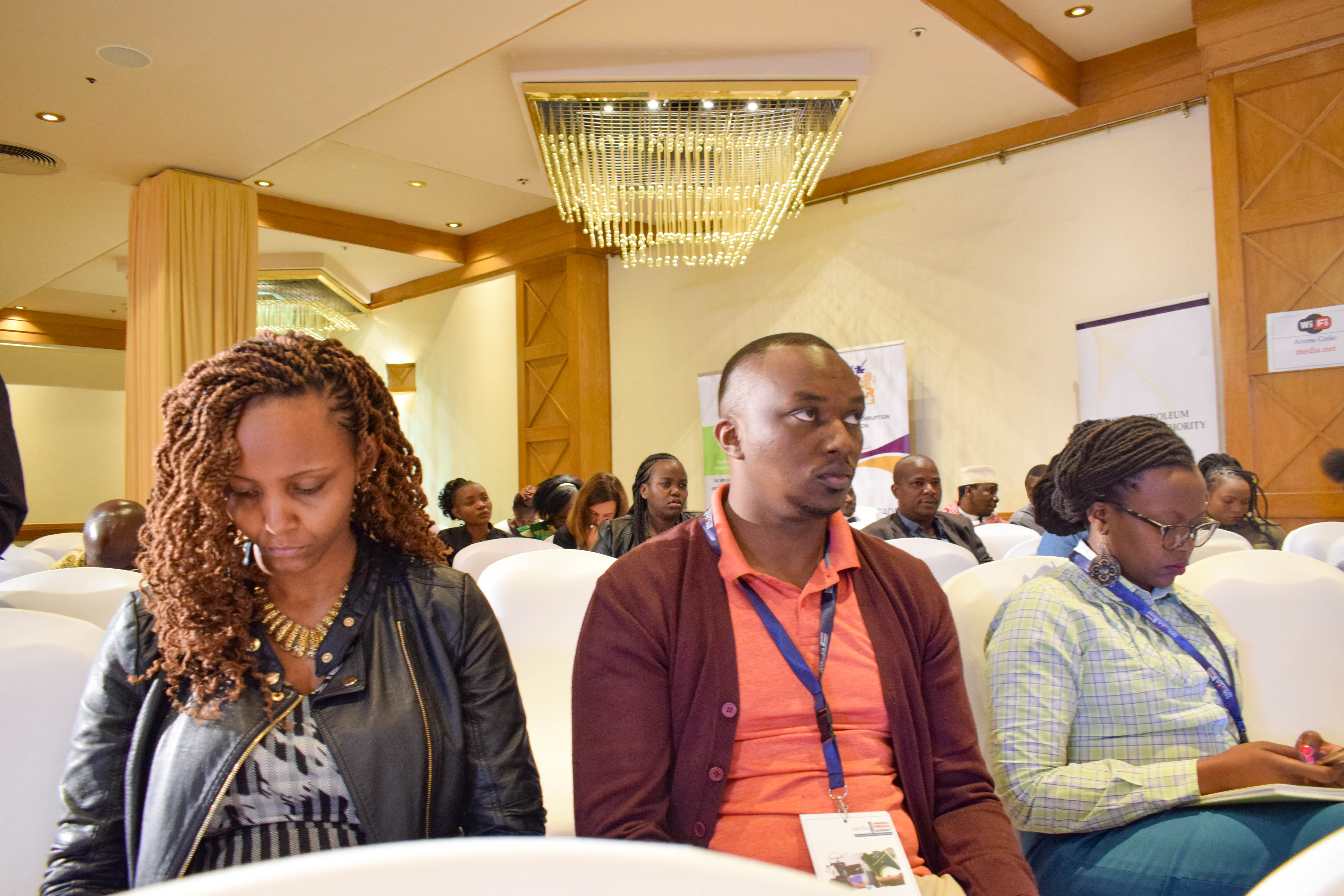
A4T Phase 2 Grants and Mentorship Application
During the first day of the media summit, Action for Transparency launched an online application for the second phase of the applications for Investigative Journalism Grants and Mentorship Programme. With over 1,000 journalists attending the event, this was a perfect avenue to launch and publicise the grant and mentorship programme, so as to promote interest and competitiveness to potential applicants. The application process will close after one month and thereafter 8 journalists selected to participate in a six month long grant and mentorship programme, with an aim of producing one or move investigative stories to expose corruption in the public service delivery sectors of health and education.
Exhibition
The project team had a great opportunity to share with participants attending the forum about A4T and EoC work through an exhibition desk. Visitors were also introduced to the A4T app, as a tool for promoting accountability.
On conclusion of the 3-day conference, the closing remarks was done by H.E. Annet Gunther, German Ambassador. She pointed out that misinformation and fake news are factors that shake the confidence of the public in media with state and non-state actors taking advantage of it to destroy the space. Ms. Annet added that freedom of expression has been marked out as integral part to governance with the media being urged to break the monopoly of information, opinion and play the watchdog role.
Annual Journalism Excellence Awards
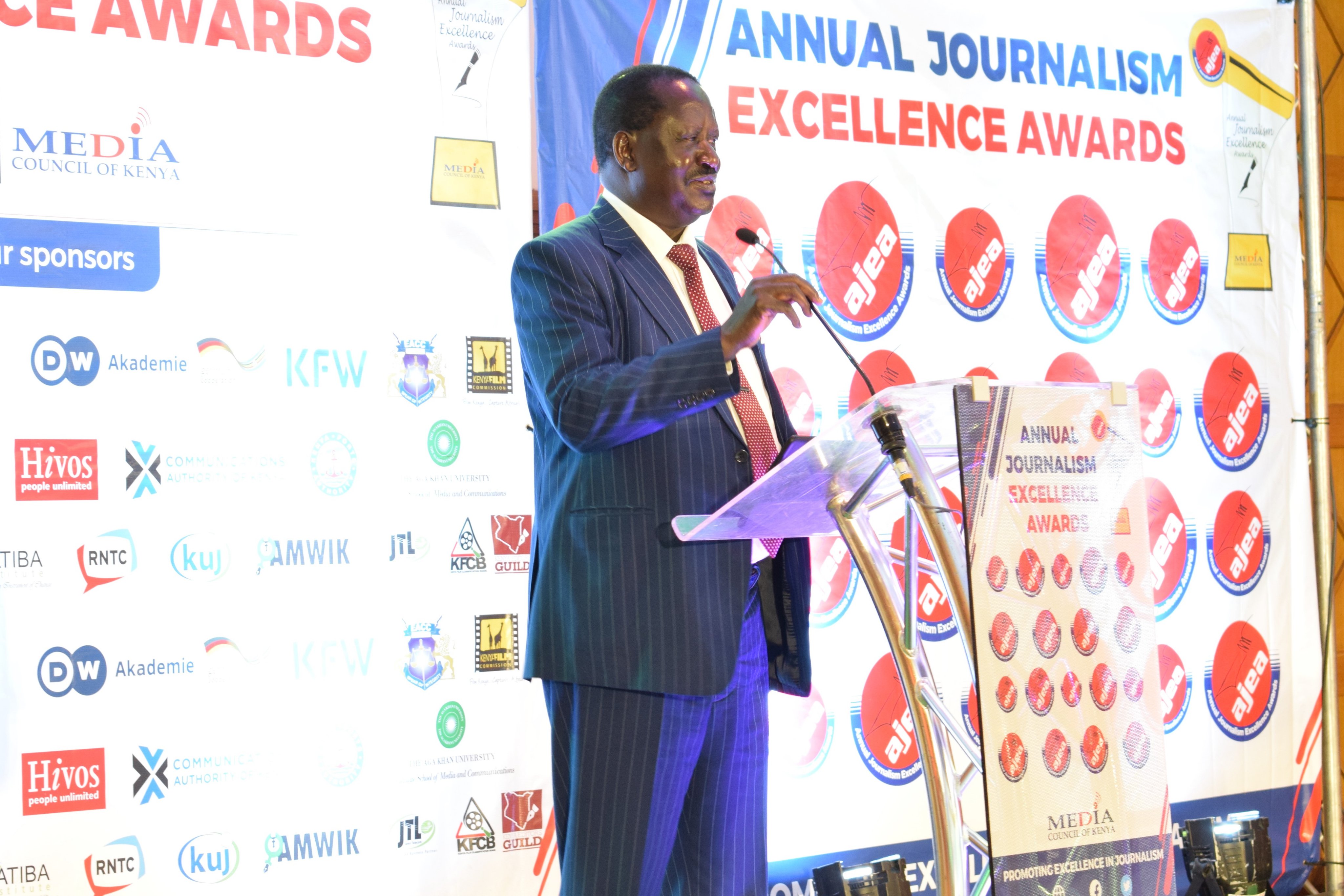
The A4T project team participated at the Annual Journalism Excellence Awards which focuses on recognising work that is ethical, interesting to the public and in the public interest. Communications and Civic Engagement Officer, Abraham Mariita presented the Good Governance reporting award for radio category to Diana Wanyonyi, story titled Mahakama ya kitamaduni ya kaya yapunguza kesi pwani ya Kenya for Radio One Tanzania. Supporting the good governance award in the Annual Journalism Excellence Awards is critical in encouraging journalists to continue or consider reporting on good governance and/or corruption.
About Action for Transparency
Action for Transparency (A4T) seeks to contribute to strengthened democratic accountability and transparency in Kenya through citizen monitoring of government expenditure (in Health & Education), in order to uncover suspected corruption and mismanagement of public funds through empowering journalists, community leaders, civil society activists and civil servants to track suspected corruption. A4T project organises and participates in forums to engage media practitioners in discussing matters on media and corruption.

